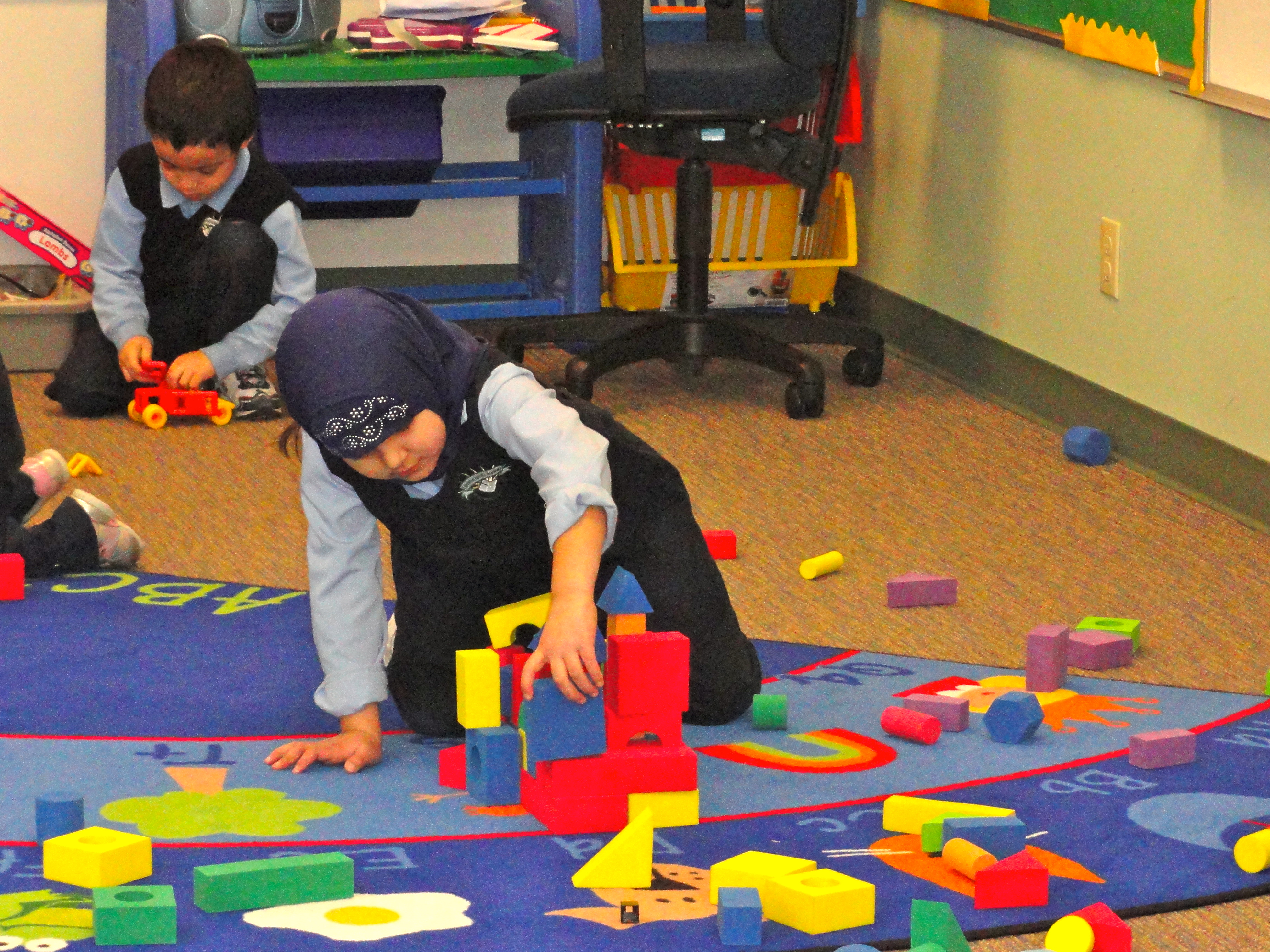
Every child is unique, and how they play is influenced by both their immediate surroundings and their culture.
While Western cultures consider solitary play an important developmental milestone, children from cultures that place a higher priority on social interaction tend not to engage in such play. Those from an oral background may tell their children stories rather than read to them.
In this video, Jarvey initially struggled with his class assignment – to tell a story about himself. He was more comfortable doing this through song, and by drumming and singing, Jarvey shared his story with his kindergarten classmates.
The Role of Play: For children who immigrate, and/or do not speak English as their first language, playing with other children not only forges social relationships, it provides a safe place to practice new words, because in the world of make-believe, anything goes. Free play should be encouraged as much as possible.
Language: When young children are learning a second language, the development of both languages is generally enhanced. The stronger the first (or home) language proficiency is, the stronger the second language proficiency will be. Maintaining the home language is not only key to a child’s success in school, it’s also important in developing their identity and self esteem.
What you can do: The Alberta Government, in consultation with authors Johanne Paradis, Darcey M. Dachyshyn and Dr. Anna Kirova, developed Working with Young Children who are Learning English as a New Language. The guide is intended to help early childhood professionals and teachers, parents and day home operators to better understand how children learn a new language, the importance of maintaining language and culture at home, and how to develop programming that effectively addresses these issues.
Loneliness: Many children of immigrants experience loneliness at school. Dr. Anna Kirova experienced this first-hand when she arrived in Canada with her husband and young son, who did not speak English. His difficulties prompted her to study the experiences of children who feel isolated in a foreign culture. She believes educators need to be aware of, and understand how these feelings of loneliness can affect a child’s ability and desire to learn.
Read more of Dr. Anna Kirova’s work.
Downloads
How can you create an ideal environment for learning another language? Also, find out why maintaining proficiency in the home language is key to a young child’s success in school.
Dr. Jane Hewes has tips on how adults can create an environment that allows children to explore their environment and learn through play.

